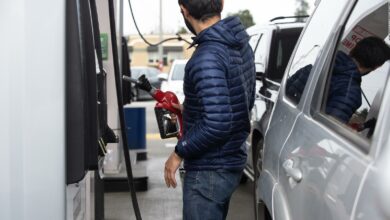Egypt cabinet ministers held a follow-up meeting for the first phase of the smart cards scheme, in which an electronic system is used for the distribution of petroleum products to customers.
The meeting included the Ministries of Finance, Petroleum, Supply, Local Development, Agriculture and Land Reclamation, and headed by Prime Minister Sherif Ismail.
The meeting reviewed a report on the evaluation of the implementation of the first phase of the distribution system, which involves monitoring and follow-up of petroleum products starting from their exit from warehouses, to the various distribution stations all over Egypt; and also petroleum products which are distributed to meet industrial uses.
The meeting discussed verifying the efficiency of first phase in increasing the effectiveness of the control process and preventing the diversion and smuggling of such products.
Official sources said that the meeting discussed the readiness of this system to take into effect as soon as possible, which sets the timetable for completing the stages of lifting subsides from fuel price within the economic reform program, adding that fuel subsidies increased after the currency devaluation, which is a strain on the state budget which amounted to LE1.1 trillion, in 2017 – 2018 fiscal year.
Khaled Abdel Aziz, head of projects department at e-finance, the company commissioned to operate the project, said that the system is ready for being activated once there is a government decree.
He added that 7.2 million smart cards have been issued for the distribution of petroleum materials for cars of various types, in coordination with the General Directorate of Traffic, pointing to the issuance of smart fuel cards for about 900 brick kilns, as well as cars of foreign embassies in Cairo.
An official at the Finance Ministry denied any intentions to limit the quantities set for the cars planned through the smart cards system, or to linking the system to the expected increase in fuel prices.




